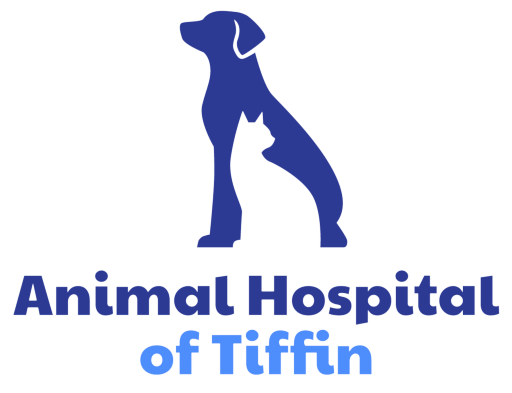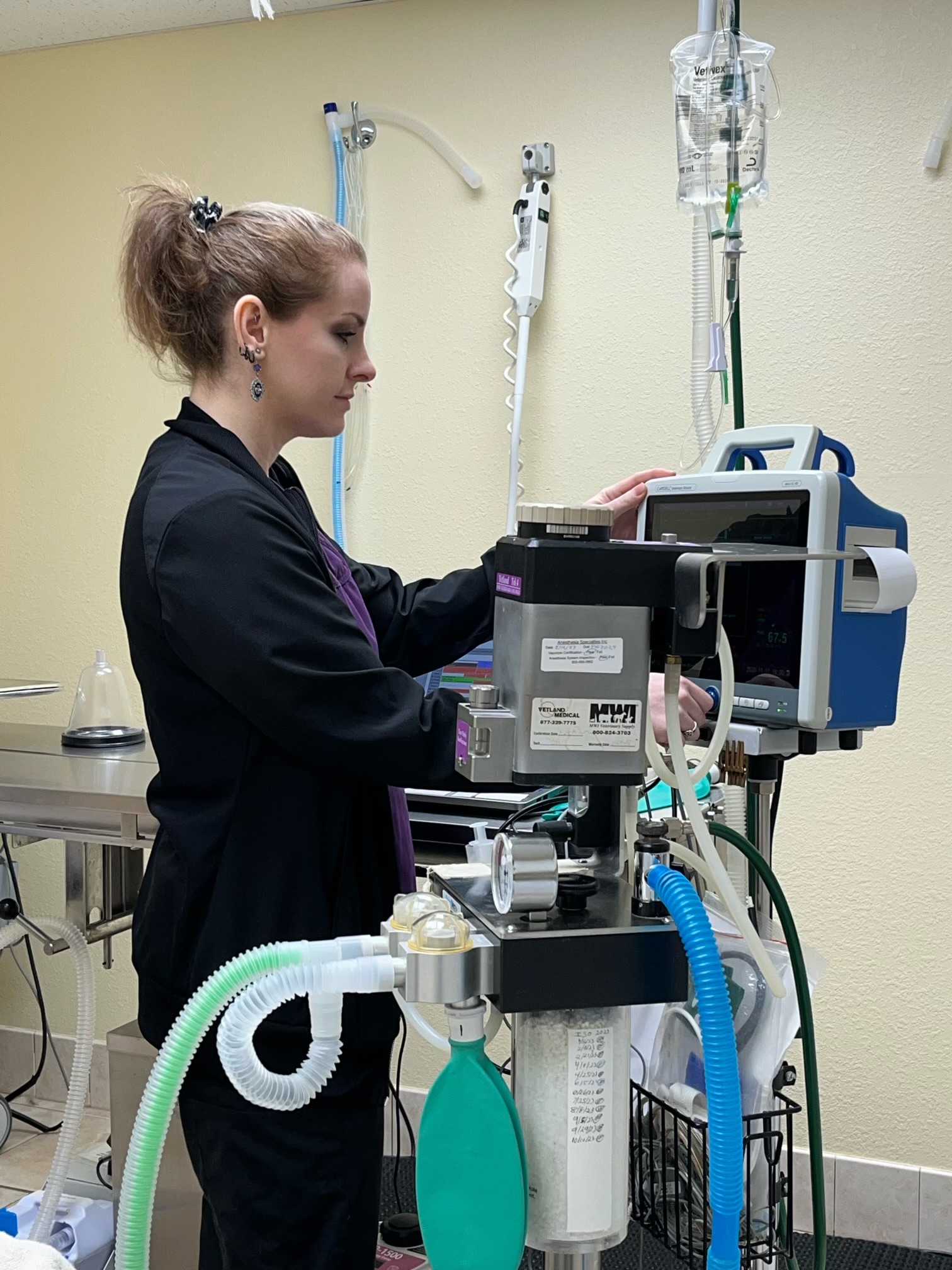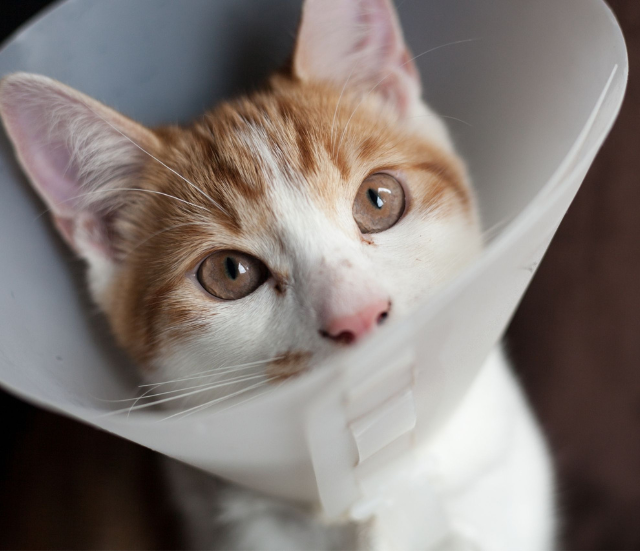Pet Surgical Procedures
Learn more about the surgical procedures we perform below.
Pet Surgical Procedures in Tiffin, OH
Pet surgical procedures encompass a range of medical interventions to treat injuries, illnesses, or conditions in animals. These may include spaying and neutering, tumor removal, orthopedic surgeries, and dental procedures.
Pet Surgery
We perform surgeries with precision and efficiency, minimizing stress and discomfort for your beloved pets. You need to trust your pet’s surgical needs to someone you can know and trust. That is why it is essential to build a relationship with a trusted veterinarian like the Animal Hospital of Tiffin staff to provide any surgery your pet needs.
Why is a trusted veterinarian so important for pet surgery?
Whether your pets need something as delicate as pet eye surgery or something as common as pet orthopedic surgery, a trusted surgeon performing the procedure is essential. Ultimately, you’re placing the life and health of your pet in the surgeon’s hands. If you want your pet’s vision restored, you need someone skilled in performing pet eye surgery. The same goes for mended bones. You want a surgeon who understands pet orthopedic surgeries and procedures to ensure the best possible outcome for your pet.
At Animal Hospital of Tiffin, we work with animals of all sizes and are prepared to help them with all aspects of their care.
Don’t wait to try and build a strong relationship with a qualified pet surgeon until the last minute. Work with us from the start so that you and your pet are comfortable with our veterinarians, staff, and office environment.
Spay (Ovariohysterectomy)
Female dogs generally go through a heat cycle or estrus every 6 months. The heat cycle may last several days or up to three or four weeks. She may become short-tempered or anxious during this time.
On the other hand, female cats come into heat cycles every three to four weeks during certain times of the year. They may show signs of nervousness and exhibit unusual behaviors such as rolling on the floor, furtively hiding, or wanting constant attention. They can also become quite vocal.
When your pet is spayed at Animal Hospital of Tiffin, it will undergo anesthesia with full anesthetic monitoring during the procedure. They will be placed into heated recovery and will spend one night in the clinic to ensure exercise restriction, as they may still be groggy after surgery. They will go home with pain medications and an e-collar (cone) to prevent them from licking their incision, along with instructions for strict exercise restrictions for the next 2 weeks. They will return to our clinic in 2 weeks for complimentary suture removal and incision inspection before being given the all-clear to return to normal activity. If you have any questions or concerns regarding surgery or would like to schedule surgery, please call us for more information.
Soft Tissue Surgery
Here at Animal Hospital of Tiffin, we perform mass removals of all shapes and sizes. With the surgical laser, we can control bleeding and swelling in areas of the body and with certain tumors that would otherwise present a challenge. We can tailor the surgery to fit your pet and always strive for a cosmetic outcome. We can remove masses that are cancerous or benign and send masses to a pathologist for further examination when needed. Masses are removed under general anesthesia with full anesthetic monitoring and heated recovery. We tailor our anesthetic and surgical plan to your pet based on medical conditions like heart or kidney disease. Your pet will have stitches after surgery and will spend at least one night with us following a mass removal. Depending on the location of the incision, your pet may go home with an e-collar (cone) to prevent licking of the incision. Sutures are removed after 2 weeks, and all patients are sent home with pain medications.
Aural (Ear) Hematoma
Cats and dogs can rupture blood vessels in their ear pinnae, which leads to swelling of the outside of the ear with blood and serum. This is often secondary to an ear infection or rough-housing with other pets. This requires surgery to drain and repair, which we offer. Pets are sedated, and a small drain is placed into the ear along with a bandage to keep the ear collapsed and allow the ear to heal cosmetically. Not correcting this condition will result in an ear abscess or a cauliflower ear that is irreparable.
Anal Gland Removal
We have the tools and the expertise to remove anal glands from both dogs and cats. This surgery is recommended for pets that have a history of painful, impacted, infected, or ruptured anal glands. Removing the anal glands completely will prevent these problems from recurring. By using the surgical laser for this procedure, we can control bleeding and swelling in the area following surgery. Call us today to schedule a consultation for your cat or dog with anal gland disease!
Perineal Urethrostomy (PU)
When male cats have repeated urinary blockages, we recommend surgical intervention, which involves rerouting the urethra to avoid the most narrow portion, where they frequently become blocked. This is a delicate surgery that Dr. Bob has been performing since 1976 with great success. This surgery can allow male cats to live more normal lives and prevent repeated urinary blockages.
Castration (Neuter)
In addition, male cats are well-known to mark their territories by spraying odorous urine on furniture, walls, shrubs, etc. Male dogs will also mark their territories. Surgical neutering of male dogs and cats eliminates reproductive behavior and reduces urine odor and the desire to spray. Your dog or cat will continue to have his own unique personality. He will be less likely to roam and will enjoy staying around home more. The surgery removes the testicles. Deciding when is the best time to neuter or castrate your pet is a decision you should discuss with your veterinarian. All neuters are performed under general anesthesia and will require proper anesthetic monitoring. They will be placed into a heated recovery and will spend one night in the clinic to ensure exercise restriction, as they may still be groggy after surgery. All pets will go home with pain medications, and dogs will go home with an e-collar (cone) to prevent them from licking their incision, along with instructions for strict exercise restrictions for the next 2 weeks. Cats do not have sutures, and dogs will have absorbable sutures, so no follow-up appointment is required unless you have questions or concerns regarding the surgical site.
Ophthalmic (Eye) Surgery
Entropion is a rolled-in eyelid where the eyelashes/fur is rubbing the surface of the eye, causing pain and trauma to the eye. Ectropion is when the eyelid rolls out, which doesn’t allow the tear film on the surface of the eye to stay healthy and keep the eye hydrated. These surgeries are delicate and performed on many patients each year to allow them to have less pain and better vision. Not correcting these problems can lead to permanent damage to the eye and even blindness.
Grid Keratectomy
A grid keratectomy is performed when a corneal ulcer is not healing properly. This most commonly occurs in certain breeds of dogs, such as Boxers and English Bulldogs. Patients are sedated, the eye is numbed with numbing drops, and the ulcer is scraped to encourage healing factors and blood vessels to come to the area and heal the ulcer.
Cherry Eye
A cherry eye (proposed 3rd eyelid gland) is common in certain breeds and usually develops by the time they are a year old. You will see a ball of red tissue at the inside corner of the eye. We offer multiple types of surgery to correct this defect, including removal of the gland or replacing the gland into its proper position in the eye. Each procedure has its benefits and downfalls, and we will discuss these with you in-depth and decide which is best for your dog.
Enucleation
Sometimes, after a traumatic event, severe and painful eye disease, or tumors in the eye, it becomes necessary to remove a pet’s eye. We take great care to ensure all other avenues are pursued before recommending this surgery, but if the surgery is needed, we can help your pet make the transition. This surgery is performed under general anesthesia, and patients spend 1-2 days with us following surgery. Patients also go home with an e-collar to prevent them from scratching at their stitches. You would be surprised at how well pets do with only one eye or even no vision. They really are amazing creatures!


